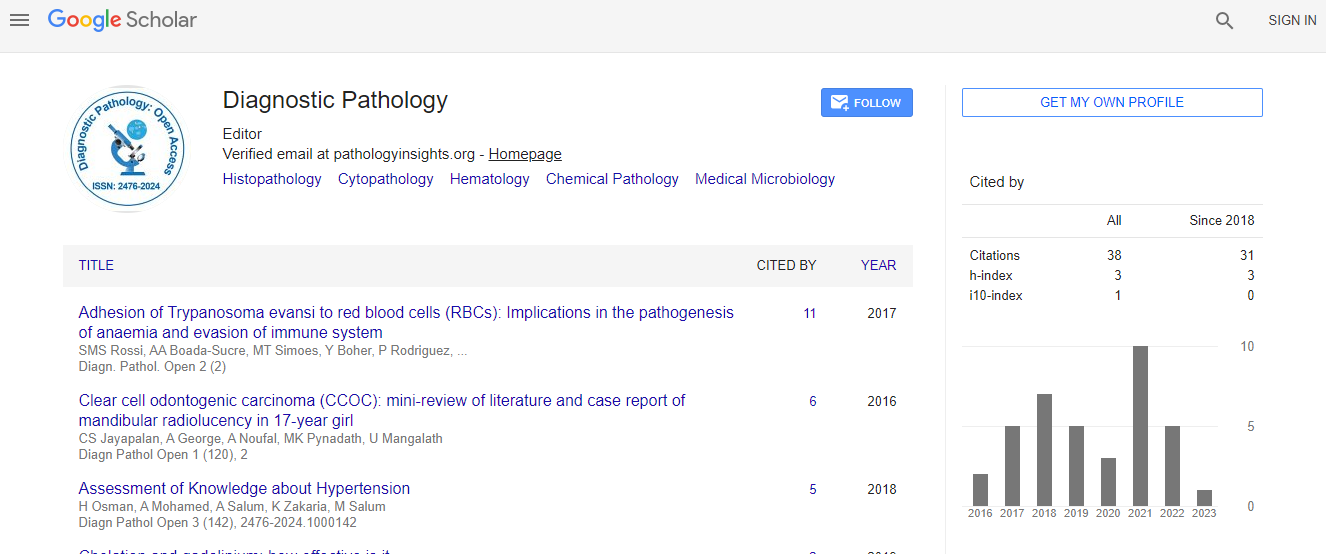The Role of EPHA3 Mutation in the Prognosis of Non-Small Cell Lung Cancer Patients Receiving Immunotherapy
*Corresponding Author:Received Date: Dec 10, 2024 / Published Date: Jan 09, 2024
Citation: Qin Q, Wang D, Ma M, Ai J, Deng L (2024) The Role of EPHA3Mutation in the Prognosis of Non-Small Cell Lung Cancer Patients Receiving Immuno -thearpy. Diagnos Pathol Open 9:244
Copyright: © 2024 Qin Q, et al. This is an open-access article distributed under the terms of the Creative Commons Attribution License, which permits unrestricted use, distribution, and reproduction in any medium, provided the original author and source are credited.
Abstract
Immune Checkpoint Inhibitors (ICIs) have changed the treatment mode of Non-Small Cell Lung Cancer (NSCLC) patients, but precise biomarkers are still needed to screen out those could benefit from ICIs. EPHA3 is the gene that codes for the Eph receptor A3 and has been found to be associated with lung cancer, but the relationship between EPHA3 and ICIs still need to be explored. In our study, data of 344 NSCLC patients receiving ICIs and 954 NSCLC patients treated without ICIs were downloaded from the Memorial Sloan Kettering Cancer Center (MSKCC) database and The Cancer Genome Atlas (TCGA) database respectively. Patients were divided into EPHA3-mutant type (EPHA3-Mut) group and EPHA3-wild type (EPHA3-Wt) group by EPHA3 mutation status. Kaplan-Meier survival analysis found that the EPHA3-Mut group (n=36) have got higher Overall Survival (OS) rates than the EPHA3-Wt group (n=308) (median OS: 3 years (95% Confidence Interval (CI)=1 to not reached) vs. 0.917 years (95% CI=0.75 to 1.17, p=0.025) in the MSKCC cohort, while differences of OS (p=0.083) in the TCGA cohort have not been observed. Besides, EPHA3 mutation was related to higher Tumor Mutation Burden (TMB) (p<0.0001), elevated Neoantigen Load (NAL) (p<0.0001) and greater mutation rate in the DNA Damage Response (DDR) pathways. EPHA3-Mugroup showed higher CD8 + T cells (p<0.05) an Natural Killers (NK) cells (p<0.01) infiltration. Gene Set Enrichment Analysis (GSEA) showed that several immune response-related pathways were up-regulated in the EPHA3-Mut group. According to the study, EPHA3 mutation may be related with the effectiveness of ICIs in NSCLC patients.

 Spanish
Spanish  Chinese
Chinese  Russian
Russian  German
German  French
French  Japanese
Japanese  Portuguese
Portuguese  Hindi
Hindi 
